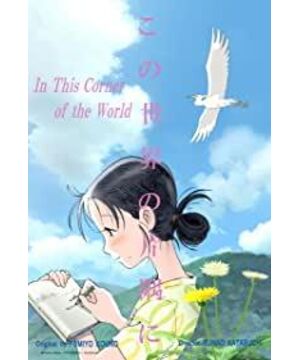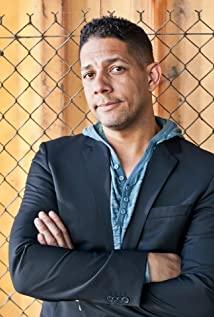During the air battle in Wuhan on the afternoon of April 29, 1938, Chen Nan's brother, Chinese Air Force pilot Chen Huaimin, drove an I-16 fighter jet and turned 180 degrees before crashing into Mieko's husband and Japanese pilot Takahashi Ken. A piloted plane, two planes crashed in mid-air. Afterwards, when cleaning up the wreckage of the enemy plane, people found a photo of Kenichi Takahashi's young and beautiful wife and a letter she wrote to her husband from the pocket of the body of the Japanese pilot Kenichi Takahashi.
April 29th was the birthday of the Emperor of Japan, the "Tianchang Festival". The Japanese army tried to use the air victory as a gift for the "Tianchang Festival", so they dispatched 27 Type 96 carrier-based fighter jets and 18 Type 96 land attack fighters to attack Wuhan.
Chen Huaimin, as deputy commander Dong Mingde's wingman, took off into the air and shot down and damaged enemy planes in the air, but also led to the siege of 5 Japanese planes. His plane's fuel tank burst into flames, his controls failed, and blood was shot out of his chest. At the juncture of life and death, Chen Huaimin gave up parachuting to survive, turned the plane upside down 180 degrees and crashed into a Japanese military plane that was rushing from behind. There was a loud bang, the two planes collided, and the air was suddenly filled with a large amount of black smoke and flames. Chen Huaimin was ejected from the cockpit, then fell into the Yangtze River and then fell to the bottom of the river.
During the fierce battle over Wuhan, the people of Wuhan risked their lives to take to the streets, and even climbed to the roofs and trees to watch the battle. Among the crowd watching the battle were Chen Huaimin's family.
When Chen Huaimin used his body as a bomb to crash the enemy plane, his parents did not know that it was his son. The day before, Chen Huaimin left his mother a piece of silver dollar before leaving home, "Mom, the Japanese army has been coming to Wuhan a lot these days. The troops are in a state of 24-hour battle, and I may be launched to fight at any time. This piece of silver dollar is for you, If you like to eat, go to the street and buy it yourself." After Chen Huaimin left, his mother bought a few large oranges and said to the family, "This is for Huaimin to eat, and no one is allowed to touch it." But these few A big citrus that my son can't eat anymore.
A month later, Chen Huaimin's body was found by fishermen in the Yangluo section of the Yangtze River. The name of "Chen Huaimin" was engraved on the back of the Air Force watch on his wrist.
Chen Huaimin's sacrifice has brought endless sorrow and pain to his family and loved ones. His mother cried blindly; his sister Chen Tianle changed her name to Chen Nan, and Chen Huaimin's lover threw herself into the river because of excessive grief after arriving in Wuhan.
To commemorate this hero, there is a "Chen Huaimin Road" named after Chen Huaimin in Hankou, Wuhan, where he died, and a "Huaimin Village" in Zhenjiang, his birthplace.
The Japanese plane crashed by Chen Huaimin landed on the edge of Tianxingzhou on the Yangtze River. When cleaning up the wreckage of the enemy plane, people found a photo of a young and beautiful woman and a letter she wrote to her husband from the pocket of the driver's body. It turned out that the deceased Japanese pilot was Kenichi Takahashi, a second-class aviation soldier of the famous "Red Samurai" of the Twelfth Air Force of Sasebo. As soon as he received the letter, he died in the air battle in the air raid on Wuhan.
Soon, this letter and this photo were placed in front of Chen Nan.
Kenichi-kun:
I don't know why I always feel at ease and want to hear from you... I even sometimes think that it would be better not to be a pilot's wife, and to be a pilot's wife always leads a lonely life. So at times I am happy, at times sad, and deep down in my heart I am sobbing! Sometimes when I think of how many innocent people have sacrificed and never come back to this different world, and you are still alive, I can comfort myself, but after three or four days, I still feel disheartened! Your family misses you infinitely, I hope you take good care of your health. Death alone is not a matter of honor, I beg you to do your duty with great care!
The nanny who takes care of the children, after she bathes the children every day, she puts them into a warm bed with great care, and the children always sleep soundly. These two children live their days with laughter...
Mieko April 19
Chen Nan originally hated Kenichi Takahashi very much, and even hated Takahashi's wife Mieko. But when she saw Mieko's letter to her husband full of grief, fear and longing, the kind-hearted she shed tears of sympathy. After all, Takahashi is also a victim of Japanese militarism, and Mieko, who lost her husband, is equally tragic.
On May 31, 1938, Chen Nan couldn't bear the grief and wrote a sincere letter to Mieko - "A Letter to Ms. Mieko". Chen Nan's teacher Cheng Yun read the letter and asked the writer Yu Dafu to revise it. Yu Dafu only changed a few typos. He said, "You don't need to revise the work of the soul, but keep the girl's innocence!" Zigang, a female reporter from Ta Kung Pao, read the letter and suggested that it be published.
Mrs. Mieko Takahashi:
...(The original letter's introduction to the air battle will be omitted.) The feeling of losing my brother made me put myself in the shoes of you, Mr. Takahashi, and how the Chinese and Japanese people were so miserably sacrificed to the wrong policies of your country's warlords. I can't help but tell you the truth! My mother, she can only stare sadly at the careless river and the moonlight, and let the painful memories beat her old and broken heartstrings. However, you are young and affectionate, and the cherry blossoms will also arouse lovesickness. You may be able to think of the fate of mankind from the tragic experience? !
Brother Huaimin resolutely slammed into Gaoqiao's plane and perished with Gaoqiao-kun. This was not to vent his personal hatred against Gaoqiao-kun. He and Takahashi-kun have no personal hatred, they just represent two different forces crushing themselves. Although he has long been determined to sacrifice for the country and fight for justice, the rapid arrival of this incident has given me too much stimulation.
Because of my intense grief, I miss you often. Thinking of your two children who lived with laughter all day long and your bleak and bleak career after that, I wish I could go to your country to see you in person and live a friendly life with you. I will never hate you for the aggression against us by your domestic warlords. I deeply understand the pain of your oppression by that mad warlord.
In this case, you should protect all mankind and save yourself and save mankind with enthusiasm to prevent the domineering warlords in your own country. We want to liberate these two countries, as well as all countries in the world, from the tragic fate of the war of aggression.
I also have to tell you that I hate war, but we in China fight to resist violence. This kind of war is a war to maintain justice and humanity, which is different from your country. If your country's warlords continue their atrocities towards China and their ambitions to occupy Chinese territory, every Chinese, regardless of gender, age, or child, will participate in a more fierce and intensified struggle. One will give in!
In the end, let me tell you, the parents in my family care about you very deeply, just like their children, without any resentment. I look forward to the day when our hands will be held lovingly to each other, heart to heart, and immersed in the enthusiasm of fresh young people. We have reason to work for this belief.
May you fight for peace in the world!
Chen Nanshu on May 31, 1938
The letter was published in the "Wuhan Daily" at that time, and it was translated into many languages and spread to the world, creating a huge sensation. Hong Kong's "Reader's Digest" also published the letter and Mieko's letter to Kenichi Takahashi in a journal. This letter, written with blood, tears and justice, has become a powerful anti-fascist public opinion, expressing the Chinese nation's perseverance, broad-mindedness and good desire for peace.
In the 1980s, China and Japan had resumed normal diplomatic relations, but is Mieko still alive? How has her life been for half a century? On April 29, 1987, the 49th anniversary of Chen Huaimin's sacrifice, Chen Nan wrote a second letter to Mieko in Changsha. She said in the letter: "I miss you every year on April 29, care for you, mourn the deceased with a deep heart, and care about the survivors..." In the letter, she still fervently hoped that Mieko could come to China and join hands in the past year. On the side of Tianxingzhou in the air battle, comfort the two souls who collided and perished together in the past, so that they can rest in peace forever.
Chen Nan wrote this letter with a pen, hoping that one day, through the exchanges between Chinese and Japanese people, he would find out the whereabouts of Mieko, and send a letter to greet her, which has been his wish for decades. But she still couldn't get in touch with Mieko.
In August 1990, Chen Nan, through a reporter from Hunan Daily who had visited Japan, wrote a letter to Yuriko Ohara, a translator in Tokyo, asking her to help find Mieko. Yuriko Ohara was very enthusiastic, and she asked Katsuhiko Shimizu, a reporter from Japan's Asahi Shimbun, to help find Kenichi Takahashi's origin, and entrusted her cousin to look for it according to the address. Decades have passed, and Takahashi's home has become a field. After several rounds and searches, in October 1990, Mieko was finally found.
Before Takahashi Ken died in World War I, he and Mieko were newly married not long ago, and the two had no children. The two children she mentioned in her letter to Takahashi were Takahashi's younger brothers. After Takahashi died, Mieko remarried and had a son. When 71-year-old Mieko learned what Chen Nan, who was far away in China, had done for her, the old man burst into tears and begged someone to convey her gratitude to Chen Nan.
Chen Nan, who fulfilled her wish, was very excited. On November 1, she wrote a third letter to Mieko: "...Although we are of different nationalities and separated by the ocean, our hearts are connected. Let's be like relatives. Like sisters, we will contribute to the friendship between the people of China and Japan from generation to generation."
View more about In This Corner of the World reviews











